 |
|
 |
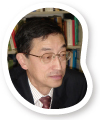 |
 |
Etsushi TANIFUJI
Course: Theories of Mass Communication
Expand your curiosity. Establish something you can do better than
others. Learn how to integrate knowledge systematically and constantly
use that knowledge to make new discoveries.
|
 |
 |
 |
Taketoshi YAMAMOTO
Courses: Theories of Public
Relations, The Media Industry
I specialize in mass communication theory, media history, and information
theory. Mycurrent research is focused on issues surrounding the print
media --- especially newspapers --- radio, television, and the so-called
new media. I have been actively involved in publishing a magazine called Intelligence as
well as in constructing a database of magazine articles in the Prange
Collection that are related to the postwar U.S. occupation of
Japan.
|
|
 |
| Koichi KOBAYASI
Courses: Sociological Aspects of Media
The Media Industry
Journalism in a Networked Society
Needless to say, journalists are required to cultivate a broad perspective.
Those who aspire to become journalists will find MAJESTy the ideal
place to acquire this perspective, because the program attracts students
with a wide range of backgrounds in the sciences and liberal arts.
I hope that this diversity will supplement the expertise of faculty
members and lead to cross-fertilization in a symposium of ideas ---
and perhaps sometimes to convivial gatherings in the original sense
of the Greek word symposion. |
 |
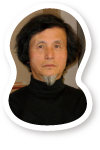 |
 |
Naomi WAKASUGI
Courses:
Medicine and Society
Risk Management
Development, Health and Gender
To be an effective communicator requires more than a mere accumulation
of knowledge. Rather, effective communicators need to possess high
levels of intellect and insight, as well as personal charm. These qualities
can be gained only from the arduous exercise of thinking, speaking,
and writing. While science and technology, like art, are marvelous
assets of humanity, they can also act against human interests. This
is what makes communicating science and technology to the public such
a worthy challenge. |
|
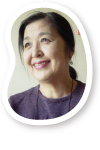 |
|
 |
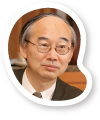 |
 |
Shiro SEGAWA
Courses: Bioethics, Practicum in Scientific and Technical Communication
4
Renoir's best-known work, Luncheon of the Boating Party,
portrays 14 men and women, all of whom but one man wear hats that represent
their occupations in those days. Although wearing a hat was part of
the public etiquette then, one man ignored the practice. He was a journalist,
and his behavior is said to symbolize the importance of the freedom
of thought. This episode is worth remembering for anyone who wishes
to become a journalist.
|
 |
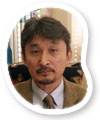 |
 |
Mamoru
ITO
Course: Media and Cultural Studies
My specialty is sociology and I personally love sociological theories. In my humble opinion, getting an insight on your own through research makes things interesting. Perhaps this might be what social scientists and journalists have in common. I hope that you will think reflectively across boundaries separating natural and human/social sciences, create new concepts and terms, and figure out complex realities. |
|
 |
| Yoshio NISHIMURA
Courses: Science and Technology Policy, Information Technology and
the Information Industry, Energy and Environmental Issues, The Media Industry, Research and Development in Private Industry
How does the public come to know about state-of-the-art technologies?
My answer is, mainly through newly developed products and services
created by engineers at companies. Those engineers should be the focus
of our attention in studying science and technology, and that is where
I can contribute my experience as a former technology journalist. |
 |
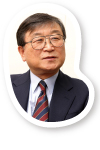 |
 |
Masashi DAUMAE
Course: Introduction to Genetic Engineering
Originally, my specialty was exploring how hormones of animals affect their behavior. Ever since facile theories attributing human behavior to some genetic cause captured my attention, however, I have come to consider the relationship between science and society, especially GMO, BSE, and cloning technology. In our class, why don't we decode the relations between modern science and society together? |
|
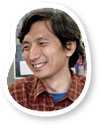 |
|
 |
 |
 |
Anthony
P. NEWELL
Course: Academic Presentation in English
English is a key that will open many doors. I hope you will be able to grasp this opportunity to improve your English with both hands. Make it one of the keys that will provide an interesting and enjoyable future for you! |
 |
 |
 |
Mark JEWEL
Course: Academic Writing in English
Good journalism relies on clarity of expression. It is a simple principle that can be surprisingly difficult to put into practice. Yet when it this principle is observed, the result is not just the communication of information but also of ideas, and thus represents a genuine contribution to the store of human knowledge. It is a goal well worth aiming for. |
|
 |
| Hiromi YOKOYAMA
Course: Practicum in Scientific and Technical Communication 1
The design engraved on the reverse side of the Nobel Prize medal depicts the goddess of science, as she holds up the veil of the goddess of nature. I look forward to creating stories about science, which can be created only by human beings, and developing the ability to multilaterally and logically probe into the reality of science deeply embedded in our society together with you. |
 |
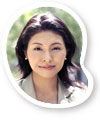 |
 |
Seiko AOYAMA
Course: Practicum in Scientific and Technical Communication 2
Science is the product of vital human activity and not some inaccessible
storehouse of knowledge. I find it a rewarding job to communicate
science in my own words to the public. I am looking forward to sharing
my experience as a science writer with you. |
|

Photo :
Takao FUJIYOSHI |
|
 |
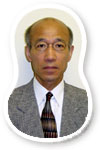 |
 |
Tatsuro HANADA
Course: Philosophy of Journalism
Journalism is an "-ism" and everything in the current universe is its subject matter. However, the "-ism" affects how journalism observes, states, and makes pronouncements, and as a result, journalism takes on a social function. An "-ist" is a person who has an accurate understanding of this "-ism" and puts it into practice. In this respect, I think the development of journalists is the development of "-ists." |
 |
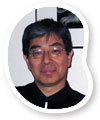 |
 |
Kikuo MIYOKAWA
Course: History of Mass Media
I hope you will aim to become journalists capable of examining the quality of information, as opposed to mere information distributors. |
|
 |
Keita
KOYAMA
Course: History of Science and Technology
I wish MAJESTy students successful future careers
as science journalists with a conviction that Veritas nihil veretur
nisi abscondi (Truth fears nothing but concealment). |
 |
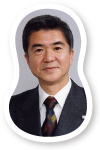 |
 |
Tatsuya MORI
Course: Media Production Practicum 1
I get lost whenever someone asks me what my occupation is. I am a TV director, a movie producer, and recently a devoted writer. I cannot think of any word that nicely integrates these occupations. If I had to give one name to these roles, I would say a part-time worker. I hope this will do; there are varied types of instructors at a university anyway. While I am a part-time worker, I do have a wealth of experience and have visited a variety of places on business. Attend my lectures, if you think that it might be fun to attend lectures given by such a man. |
|
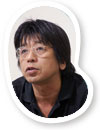 |
|
| |
| |
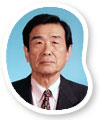 |
 |
Masahiko ISHIZUKA
Courses:
Introduction to English Writing, Practicum in Writing and Presentation in English (Journalism)
Edward Said once said, "The intellectual today ought to be
an amateur, someone who considers that to be a thinking and concerned
member of a society one is entitled to raise moral issues at the
heart of the most technical and professionalized activity." (Said,
1994). I have long treasured this phrase as it can also be applied
to journalists.
Reference
Said, E. (1994). Representations
of the Intellectual: The 1993 Reith Lectures. London: Vintage. |
|
Kyoko OKAMOTO
Course: Research Methods in Science and Technology
I sincerely hope that you will become good science communicators who serve to link science with society. To this end, give serious thought to what should be learned and researched in this MA program to make your days here productive and fulfilling. |
|
|
| |
| |
Yukiko MOTOMURA
Journalist, Science and Environment Department, Mainichi Newspapers
Course: Practicum in Scientific and Technical Communication [3A]
I really think that it is quite all right if some children dislike science or if some adults are not good at science. But I want such children to know that there is something interesting in the science they hate, and such adults to know that they might put themselves at risk if they do not know some science. I think that science journalism should play a role in filling the void. I have been trying to communicate scientific information in ways people can easily understand, and this is still a trial and error process. But, I feel my own experience of having switched my academic course to science from arts in midstream has somewhat helped me in my communication effort. |
|
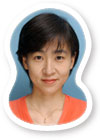 |
|
|
| |
| |

Photo by Glen Hacker |
|
Debra A. Schwartz
Founder/CEO
Dash Writing Service
Course: Science Journalism
Science journalism helps the mind open to possibility. That may be because the people we interview – scientists mostly – deal in probability rather than fact. It is their trademark, and becomes a hallmark of journalism about science. Journalists are after facts, concrete pieces of information that have been proven. Scientists know new information may invalidate widely accepted “proven” ideas. In so doing, they remind us to keep our minds open. |
|
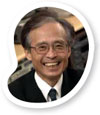 |
|
Katsuhiko HAYASHI
Principal, School of Science and Technology Journalists
Executive Board Member, Japanese Association of Science & Technology Journalists
Chairman, Preparatory Committee for Founding of Science Visualization Society of Japan
Course:「Science Image Production Practicum [2A]」
For 40 years, I have been with NHK (Japan Broadcasting Corporation) and have been involved in the production of a myriad of TV programs centering on science, environment, and medical care as well as documentary programs. The TV programs I have produced include the NHK Special series such as Human Anatomy, Human Anatomy II: Brain, Heart and Mind, Human Anatomy III: Gene/DNA, Chernobyl Nuclear Power Plant Disaster, Brain Death and Atomic Bomb Disease.
The important qualities of a good science and technology journalist are curiosity and the spirit of healthy criticism based on thorough newsgathering. In addition, creativity is essential in order to make good image production as you have to come up with something new at all times in the areas of 1) subject matter, 2) perspective, and 3) mode of expression. |
|
| |
Hironori AYABE
Associate Professor, Faculty of Science and Engineering, Waseda University
Course: [Science and Technology Policy Studies]
Personally, I want science and technology journalists to be a good critic of science and technology. I think that, just as good critics nurture good art, good science needs good critics as well. I hope to help you become an astute and discerning critic of science and technology through the curriculum. |
|
|
|
|
|
|
| |
|
 |
|





